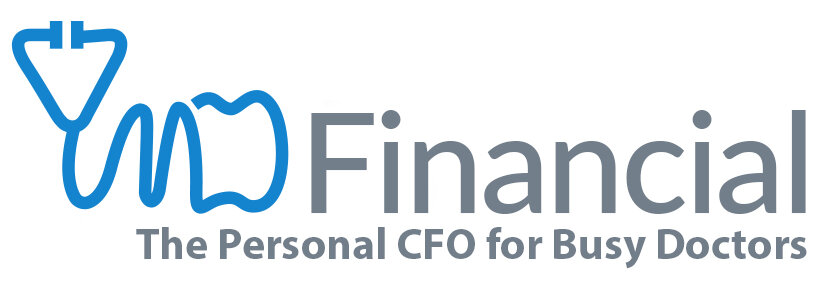By Katherine Vessenes, JD, CFP® and Josh Lantz, CRPC®
Managing personal finances can often take a back seat to a doctor’s demanding schedules. However, overlooking key financial decisions in the early stages of a medical career can lead to long-term setbacks. Today we’re discussing common financial mistakes made by young doctors and offer strategies to avoid them.
Avoid a Sequential Approach:
Many doctors tend to tackle financial tasks one at a time, such as paying off debts before starting to save. While debt repayment is crucial, it's essential to adopt a comprehensive approach. Beginning savings early allows for the advantage of compounding interest, significantly impacting long-term wealth accumulation. So instead of postponing your savings until you pay off all your debts, do both simultaneously. Yes, get that debt paid off, but at the same time allocate some funds for long-term savings. Once your debt is satisfied, increase your savings by the amount you were previously paying for your debts.
Moderate Housing Purchases:
Investing in an overly expensive home can strain financial plans, potentially hindering retirement savings, debt payments, and other crucial financial goals. We see many young doctors buy the house of their dreams, not the house they can really afford and become house poor. This situation can take years to reverse. To avoid this, it is important to calculate the missing essentials in your financial life, like future retirement needs and children's education expenses, before deciding on the size of your house. We find standard formulas for what doctors can spend on a house don’t always work, because they tend to have high student debt that is as large as a mortgage.
A rough rule of thumb would be to look for a mortgage that is 2 to 2.5 times your annual salary IF (and it is a big if) you have no student debt. If you make $300,000, in this market of very high interest rates, you should look at a mortgage of $600,00 to $700,000, or hopefully less. But before you commit to this amount, run a budget first to make sure your top priorities are addressed. Then see if the payments on a $600,000 loan will fit into your long-term goals.
Maintain Consistent Savings:
It is not uncommon for doctors to become less willing to save over time, especially as lifestyle expenses increase. Children, their schooling, travel and sometimes taking care of aging parents is expensive. However, consistent and disciplined savings are vital for securing future financial stability. Consider automating savings to ensure they remain a priority.
Beware of Recency Bias:
Recency bias can lead a doctor to investment decisions based on recent trends or hot markets. It's important to remain mindful of the long-term performance of various investments rather than chasing recent trends. Employing an evidence-based investment strategy helps in avoiding impulsive decisions influenced by fear of missing out (FOMO).
By adopting a methodical and evidence-based approach to managing finances, doctors can build a strong financial foundation early in their careers. Balancing debt repayment, lifestyle choices, and long-term savings can pave the way for financial security and independence in the future. For further financial advice tailored to your specific situation.
To learn more about financial strategies for doctors and gain insights into sound financial management, please reach out for a free consultation.
Listen on Apple Podcast, Google Podcast or Spotify
CONTACT US
1-888-256-6855
Remember that you can send us any questions at: Info@MDFinancialAdvisors.com
Katherine Vessenes, JD, CFP®, is the founder and CEO of MD Financial Advisors who serve 500 doctors from Hawaii to Cape Cod. An award-winning Financial Advisor, Attorney, Certified Financial Planner®, author and speaker, she is devoted to bringing ethical advice to physicians and dentists. She can be reached at Katherine@mdfinancialadvisors.com.
Josh Lantz, CRPC®, Chief Investment Officer, Financial Advisor With over a decade of financial planning experience, Josh has worked on more than 450 doctors’ financial plans. “It’s very hard to find a doctor’s situation I haven’t seen before,” says Josh. This is only a snapshot of the expertise Josh brings to MD Financial. He was recently recognized in Medical Economics for Financial Adviser for Doctor’s in 2017-2018, as well as Dental Products Report’s Best Financial Adviser for Dentists in 2019. In 2022, Josh was recognized as a Five Star Wealth Manager Under age 40. He can be reached at Josh@mdfinancialadvisors.com.

![A Doctor's Guide to Avoiding Four Crucial Financial Pitfalls [Podcast]](https://images.squarespace-cdn.com/content/v1/561feb4ee4b0de0eb30d6d3c/1700671737506-L470MNAUY9OBX7QH7PUG/Man+climbing+mountatin.jpg)
